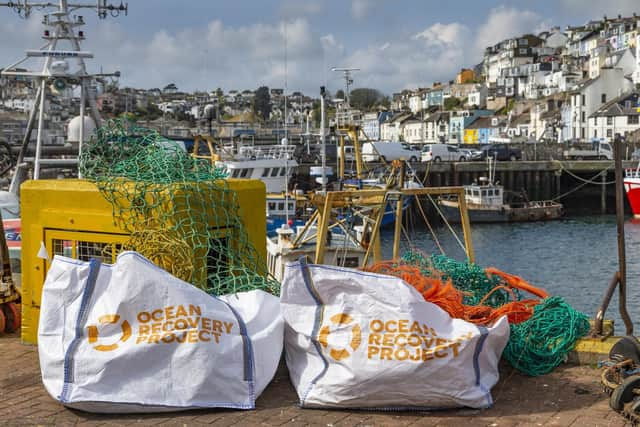90 tonnes of 'ghost' fishing nets recycled in pioneering project
Keep Britain Tidy’s ‘Ocean Recovery Project’ supports the recycling of materials collected from harbours, beaches and the wider marine environment. The project works with the fishing industry, local authorities, businesses and beach clean volunteers to collect plastics as well as supporting divers who recover material from the seabed.
‘Ghost nets’, in particular can cause long term damage to our ocean species. The nets continue to catch marine life (ghost fishing), with crabs, rays, fish, mammals and even birds getting caught. These then act as bait for larger species, including seals, dolphins and whales, which have also been found tangled in the nets.
Advertisement
Hide AdAdvertisement
Hide AdWorking with multiple partners, the project proactively intercepts material at harbours alongside collecting nets and other plastics from the beach. These are then sorted, processed and recycled into plastic pellets that are used to produce an array of products from footwear to furniture and insulation blocks.


Grant funding was awarded by the ScottishPower Foundation in September 2022 to expand the successful pilot of Keep Britain Tidy’s Ocean Recovery Project in Southwest England, with nine harbours now part of the recycling network, from the Scottish islands to the south coast of Devon. Through collaboration with multiple organisations, material has been collected from beaches, the seabed, harbours and the wider fishing community.
The project this year has seen 93 tonnes – equivalent to the weight of more than 90 family cars – of fishing net and rope being successfully recycled.
Neil Hembrow, Ocean Recovery Project manager at Keep Britain Tidy, said: “Plastic pollution is a threat to our oceans and to marine life that calls them home. The Ocean Recovery Project tackles this threat by intercepting and recovering these plastics and then turning them into something useful. The recycled plastic and demand for pellets has led to the creation of new products, instead of them ending up in landfill or the toxic plastic soup that does so much harm.”